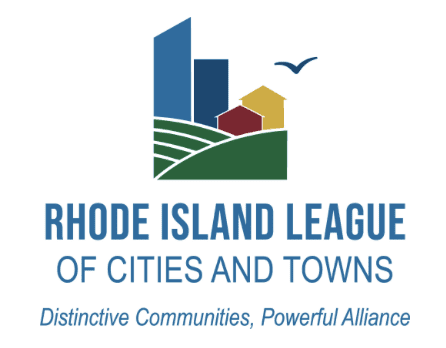Search Posts
Recent Posts
- Real Estate in RI: Seaside waterfront communities are all the rage. Who’s buying – Emilio DiSpirito June 6, 2025
- Outdoors in RI: 2A votes, Charter Yachts, active summer programs, garden tours, aquatic weeds… June 6, 2025
- All About Home Care, with two Rhode Island locations, closing after 22 years in business June 6, 2025
- GriefSPEAK: Angel wings with footprints – Mari Nardolillo Dias June 6, 2025
- Rhode Island Weather for June 6, 2025 – Jack Donnelly June 6, 2025
Categories
Subscribe!
Thanks for subscribing! Please check your email for further instructions.

RI League of Cities and Towns weighs in on Housing bills
Jordan Day, Associate Director of the RI League of Cities and Towns provided testimony on the following bills – part of a 12-bill package to deal with the housing “crisis” in Rhode Island:
Bills: House Committee on Municipal Government & Housing – March 16, 2023H6081 – An Act Relating to Towns and Cities – Low- and Moderate-Income Housing H6082 / H6084 / H6090– An Act Relating to Towns and Cities – Zoning OrdinancesH6085/H6086 – An Act Relating to Towns & Cities – RI Comprehensive Planning & Land Use Act H6088 – Extension of the Low- and Moderate-Income Housing CommissionH6089 – Extension of the Land Use Commission
Housing continues to be a priority at all levels of government in Rhode Island. Municipal leaders stand together in welcoming the development of responsible housing in our communities and are interested in working with stakeholders across the state to improve housing opportunities for Rhode Islanders. League staff and Executive Board members have been meeting with the Governor, leadership in the General Assembly and other key stakeholders to raise awareness of the challenges of local leaders. Municipalities regularly deal with a lack of resources to address large-scale issues which is why we are calling attention to a need for resources and thoughtful policy change.
To accomplish this, municipalities need:
· A clear menu of innovative solutions and funding opportunities from the state that can be implemented during the winter season and beyond.
· Increased funding for infrastructure improvements and remediation, outside of federal aid opportunities.
· To preserve and promote quality of life, based on the different communities’ needs and respect the local voice in land use decisions.
· Funding the implementation of programs and systems to support process improvements.
· Increased technical support and adequate funding to departments and agencies that facilitate housing growth, including the Division of Statewide Planning and Department of Housing.
· Workforce development to expand the pool of municipal planners and building and zoning officials.
· Adequate state and education aid to support the needs of residents.
· A commitment to expand reliable transportation opportunities for residents, extending the urban service boundary.
Local leaders agree that zoning and land use should remain a local decision. Our members strongly encourage the state to work with cities and towns to encourage housing construction and rehabilitation and remove barriers to housing, such as infrastructure improvements.
We have seen challenges in the last year with changes to legislation that had the opposite impact of the legislative intent. Our members hope to work with both the Land Use and Low- and Moderate-Income study commissions and the General Assembly to ensure that these meaningful policy changes can be implemented and enforced at the local level to avoid revisiting issues year after year. The Speaker, alongside Chairwoman Speakman and Chairman Deller, presented legislation that is intended to spur housing development and streamline processes. The League, and its members, have taken the opportunity to review the proposed legislation and conceptually agree with much of what is being considered.
Modifications to the Low- and Moderate-Income Housing Act (H6081)
The proposed amendments from Speaker Shekarchi regarding the Low- and Moderate-Income Housing Act includes many thoughtful changes that are intended to streamline the permitting process and clarify the requirements associated with each stage of the permitting process. In reviewing this legislation, we have identified three items that we would like to see addressed prior to the passage of this bill:
· Creates density bonuses for meeting minimum comprehensive plan standards. While we agree with the sentiment, we do not believe that this proposal goes far enough. We would like to propose that density bonuses are issued on a sliding scale to incentivize affordable housing development.
· Creates a requirement that decisions of the planning board must be recorded but it is not clear who is the responsible party. We ask that this language be clarified to clearly state the responsible party for recording the decision to ensure that there is no confusion.
· Lastly, the legislation includes many amendments that would present a significant constraint on the local review of comprehensive permit applications, including a modified definition of “meeting local housing needs,” pre-application requirements and removal of items within the municipality’s jurisdiction. We would ask that the Speaker, sponsors and members of the committee hear from local officials regarding any concerns they have with these adjustments.
Modifications to RIGL § 45-24 Regarding Zoning Ordinances (H6082, H6084 & H6090)
The League is generally supportive of legislation that addresses opportunities to provide housing for all folks, including housing for the “missing middle.1” Members of the committee should have received specific feedback from the American Planning Association of Rhode Island (APA RI) regarding H6082 which is intended to provide clarity to the changes approved last session around Accessory Dwelling Units (ADUs). Their recommendations largely center around RIGLs § 45-24-73. Our members appreciate the additional clarity that has been provided but share concerns with APA-RI regarding these design standards, especially wording around infrastructure language. We would ask that any references to state law be specific as to avoid additional confusion, if not removed in its entirety as State Building Code is still applicable when constructing an ADU.
We are supportive of innovative solutions such as a Transit Oriented Development pilot program (H6084) and adaptive re-use (H6090) as they provide an opportunity for a targeted approach to housing. We are interested in hearing feedback from other stakeholders regarding these proposals but we are encouraged by these concepts. Transit-Oriented Development is being implemented in other states and it would be great to implement a pilot program that is able to model where there has been success and learn from their challenges. House Bill 6090 especially benefits our more rural communities as they have limited public infrastructure to support large-scale housing developments. This would allow and encourage municipalities to lean into the building stock they have available.
Modifications to the RI Comprehensive Planning & Land Use Act (H6085 & H6086)
House Bill 6085 would prohibit communities from utilizing comprehensive plans that have expired after 12 years since its initial approval (i.e. approved in 2002, expires 2012, has until 2014 to get approval) in land use denials, require local zoning maps to be in compliance with future land use maps within 12 months and must review plan annually for 5-year implementation program. There are currently 11 communities2 that are out of compliance with current state law. It would be entirely unfeasible for communities to come into compliance prior to January 1, 2024, given the lengthy requirements associated with this process and the capacity of both the municipal staff and the Division of Statewide Planning.
League members would like to add language to allow for any currently expired comprehensive plans to come into compliance by July 1, 2026, and be allocated specific funds to support them coming into compliance. We estimate, based on prior plan approval processes, that each community would need approximately $100,000 to do so. The General Assembly approved Municipal Technical Assistance funds that have not been allocated at this time – program rules were approved in January 2023 and the process is being managed by Rhode Island Housing. We would ask that some of these funds be directed to support these communities for immediate needs and continue to allocate technical assistance funds in future years to support the maintenance of these comprehensive plans.
We support the changes from certified mail to first-class mail (H6086). We would ask for additional language to be added regarding website posting that would clarify that public meeting notices are accessible via the homepage, rather than the notices specifically being on the homepage. Many communities already do something similar and support increased access for those that haven’t done so yet.
Extension of the Low- and Moderate-Income Housing and Land Use Commissions (H6088 & H6089)
The League has previously submitted testimony in support of extending the timeline for both commissions to complete their work from 2023 to 2025. The League and its members are deeply invested in the outcomes of this comprehensive review of land use laws and have worked with APA-RI to provide relevant feedback on the subject matter being discussed and offer our perspective on the discussions had by the Commissions.
Cities and towns continue to face increasingly complicated trade-offs on land use decisions – trying to support statewide renewable energy goals and build housing to address the affordability crisis facing many Rhode Islanders while conserving land for future generations. Cities and towns are also grappling with the impacts of climate change, making it harder to develop in areas prone to coastal and riverine flooding. We are prepared to continue working with the Commission and its members however we can help develop a strategic land use policy that improves outcomes for all.
1 https://missingmiddlehousing.com/2 There are two communities currently going through the comprehensive plan approval process. The Division of Statewide Planning would be able to offer more insight regarding these two communities. |

About the Rhode Island League of Cities and Towns:Founded in 1968, the Rhode Island League of Cities and Towns is a municipal membership organization that serves as the unified voice of local government in Rhode Island. Learn more at www.RILeague.org
